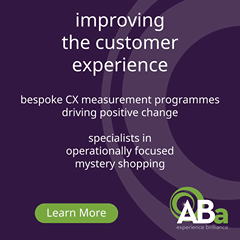Championing the consumer in 2021: Why reforming customer loyalty is the key to growth
By Pete Howroyd, CEO of Swapi: The pandemic has hit the retail industry hard.
More than ever, brands, businesses and organisations need to ensure that their customers stay loyal to them during this period of regrowth within the industry and economy. To do so, retailers must make their loyalty programme more engaging and embrace collaboration in their offerings to stay ahead, as research showed that creating a tailored and innovative loyalty programme is the best way to meet and exceed customer expectations and inspire long-term loyalty.
As it stands, 58% of internet users believe that earning rewards/loyalty points is one of the most valued aspects of the shopping experience, therefore it is easy to see why innovation and collaboration within the programmes would prove to be beneficial to any retailer with a loyalty scheme.
The current state of loyalty programmes
Since their introduction, loyalty programmes have often been seen as a great way of enhancing the shopping experience. Providing an extra sense of care from the retailer as well interactivity, customers have for a long time enjoyed being able to accrue points with their regular shopping. The ability to make normal purchases, build up points which can be used in purchasing rewards is very satisfying and has until now been an enjoyed aspect of the retail shopping experience.
However, the novelty wore off some while ago. Traditional loyalty programmes have suffered from a lack of customer-centricity or innovation in recent times. Consumers who have built up their points throughout the years are finding themselves wasting them for items with little to no value in the grand scheme of the purchases they have made throughout the years. No one can really argue that spending constantly on groceries over the years to build up a sizeable number of points, only to be rewarded with a couple quid off your next shop or a small item, is not really all that appealing. In fact, 33.1% of people found that rewards within loyalty programmes were uninteresting. It’s easy to see why the loyalty programmes therefore need a shake-up.
Collaboration over competition
Businesses can learn a lot from each other, and there are benefits to be gained by greasing the wheels of collaboration such as greater engagement, reduced operating expenses, improved efficiency, productivity, and work process among other benefits. This aspect of collaboration is equally as applicable for the retail sector.
The ultimate aim of any collaboration is for both partners to benefit from, and take advantage of, each other’s key markets. Whether that’s through designing products that cater to both markets, or perhaps collaborating on ideas and strategy, businesses that work together can find themselves reaping a range of rewards down the line. The act of collaboration means that joint audiences can now be targeted to offer this combined consumer base more innovative services or goods that would improve the overall offerings of any business.
Embracing collaboration within loyalty programmes would be a sure-fire way of increasing engagement, innovation and ultimately loyalty, as old and uninteresting loyalty scheme offers become updated with new incentives for consumers to continue spending. Collaborations such as the Amazon Prime and Morrisons partnership have allowed for different markets and audiences to merge, and have ultimately benefitted both businesses.
Implementing a modern loyalty system
If you looked at the points you have accrued over the years for any loyalty scheme you are a member of, you may find some joy in seeing that your constant loyalty to that retailer has allowed you to amass a great deal of points to use to redeem special prizes or a sizeable discount off your big Christmas shop. However, you may quickly be demoralised in finding that nothing within that brand’s rewards particularly appeals to you. You can therefore wait and keep your points, hoping that one day an item or service of interest shows up as a reward, but you will never truly know for sure. You may instead see that an item in another loyalty scheme that is of more interest to you, however you may lack the points to purchase it. A collaboration within these two retailers that combines both loyalty schemes is then beneficial to both businesses as well as the consumer who gets to reap the rewards. The process of collaboration here would be sure to drive up customer engagement and loyalty.
Thinking between two brands is too small-minded. Retailers shouldn’t be afraid in this post-pandemic to take collaboration one step further for the best possible loyalty offering, allowing for points to be used across different industries, and ultimately benefitting both business and consumer.
Another way to benefit the consumer is by compacting all of their loyalty cards/schemes into one space or app, giving them the ability to use points from different retailers across brands, all in one integrated system, providing the ultimate level of choice and freedom.
There is no denying that the power of collaboration can greatly help any business achieve more and become more engaging. However, it shouldn’t be left unsaid that in the end, the consumer should be front of mind if retailers are looking to drive loyalty.














